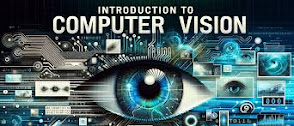Introduction to Artificial Intelligence (AI)
Artificial Intelligence (AI) refers to the simulation of human intelligence processes by machines, particularly computer systems. It enables machines to perform tasks that typically require human intelligence, such as learning, reasoning, problem-solving, and understanding language.

Artificial Intelligence
Key Components of AI
Machine Learning (ML)
AI systems learn from data and improve their performance over time without being explicitly programmed.Natural Language Processing (NLP)
Enables machines to understand, interpret, and respond to human languages, as seen in chatbots and virtual assistants.Computer Vision
Allows machines to interpret and process visual information from the world, such as recognizing faces or objects.Robotics
Combines AI with physical machines to automate tasks, such as manufacturing or healthcare robotics.Neural Networks
Inspired by the human brain, these algorithms process data in layers to recognize patterns and make decisions.
Applications of AI
Healthcare:
Diagnosing diseases, personalizing treatments, and managing patient data.Education:
AI-powered learning platforms, personalized study plans, and virtual tutors.Transportation:
Self-driving cars, route optimization, and traffic management.Business:
Customer support through chatbots, fraud detection, and data analysis for decision-making.Entertainment:
Recommendation systems for movies, music, and games.
Advantages of AI
- Efficiency: Performs repetitive tasks quickly and accurately.
- Scalability: Can handle large volumes of data effortlessly.
- Innovation: Drives creativity and new solutions to complex problems.
Challenges of AI
- Ethics: Ensuring AI is used responsibly without harm.
- Bias: Avoiding discrimination due to biased data.
- Job Displacement: Potential loss of jobs due to automation.
Ethical and Social Considerations
Bias in AI
- AI systems can inherit biases present in training data, leading to unfair outcomes.
Privacy
- Use of personal data in AI raises concerns about user privacy and data security.
Employment Impact
- Automation may replace repetitive jobs but can also create new opportunities.
Regulation
- Governments and organizations must establish ethical guidelines and laws for AI usage.




Comments
Post a Comment